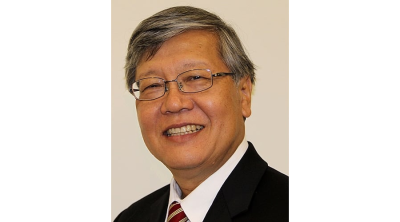
The world’s economic and political center of gravity is increasingly shifting towards the Indo-Pacific. That’s why in my recent keynote speech on China, I highlighted the need to deepen the UK’s cooperation and alignment with friends and partners in this critical region.
China is of even greater historical, geographic and economic significance to the countries of Southeast Asia. Its role as a source of economic growth, its historic ties with much of Southeast Asia and strong people-to-people links are a part of this region’s modern success story.
We also realize that growing geopolitical tensions bring greater concern for the future stability and prosperity of Southeast Asia.
So, let me be clear about the UK’s position: while our approach to China must protect our national security and align with our friends, we will engage and trade with China where our interests converge.
Whatever our differences with China, we do not live in a world in which whatever is gained by one side is lost by the other.
We understand that China’s gain can also be this region’s gain. And we are acutely aware that no significant global or regional problem – from climate change to pandemic prevention and economic instability – can be solved without China.
Our goal is not to isolate China. It is in no one’s interest to declare a new Cold War.
A prosperous and peaceful China – living up to responsibilities that are commensurate to its size and history – is good for the UK, the region and the world.
We want a constructive and beneficial relationship with China.
Only this month I met Vice President Han Zheng to discuss working together on climate change, economic ties and people-to-people links.
But we should also be clear about where we, and our friends in the Indo-Pacific, disagree with China.
Peaceful co-existence with China has to begin with respecting fundamental laws and institutions, including the UN Charter.
As we see new Chinese military bases appearing in the South China Sea and beyond, we should ask: What is it all for? Why is China making this colossal military investment?
The UK and Asean are committed to international law, in particular the UN Convention on the Law of the Sea (UNCLOS).
We are open and transparent about our aims and activity. It is in the interests of China, also a party to UNCLOS, to be open about the intent behind its military expansion.
Transparency is in everyone’s interests and secrecy can only increase the risk of tragic miscalculation.
A war across the Taiwan Strait would not only be a human tragedy. It would destroy world trade worth $2.6 trillion, according to Nikkei Asia.
No country could shield itself from the repercussions of this catastrophic blow to the global economy. So it is important that no party takes unilateral action to change the status quo.
And when the United Nations finds that China’s mass incarceration of Muslims in Xinjiang, often for doing nothing more than observing their religion, may constitute “crimes against humanity”, then our revulsion is shared across the world.
Peaceful co-existence with China has to begin with respecting fundamental laws and institutions, including the UN Charter, which protects every country against invasion.
By attacking Ukraine, Russia has provided an object lesson in how a UN member should not behave.
Vladimir Putin has also trampled upon China’s own stated principles of non-interference and respect for sovereignty.
A powerful and responsible nation cannot simply abstain when this happens, or draw closer to the aggressor.
The UK believes that in order to bolster our relationships with partners in Southeast Asia, we must carefully listen to other countries’ perspectives.
We understand that in a globally integrated region committed to peace, prosperity and development, no country wishes to “pick sides.”
Compelling countries to do so would represent a willful misunderstanding of Southeast Asia’s complex – and often beneficial – relationship with China.
Deeper UK links with the countries of the Indo-Pacific are here to stay. Our accession to CPTPP will integrate our economies ever more closely.
Let us work together to reinforce a dynamic and open Southeast Asia which determines its own future and in which all can thrive.
(James Cleverly is the Foreign Secretary of the United Kingdom.)
ADVERTISEMENT
ADVERTISEMENT








































